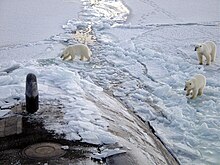In a world that begs to be experienced, those of us who set our sights on doing so fully frequently in what the Canadian poet and novelist Robert Service called wanderlust. We set our sights on parts unknown, be they physical, mental, or emotional, and set forth, entirely open to what we find. We're ready for anything. Or as Service puts it, we respond to the "call of the wild."

Yet ours does not need to be that of Service's. Whatever it be, however, it in this "call of the wild" that we confront ourselves and our world most fully. We bump against the dichotomy that governs all of existence, the grand balance between beginning and ending. We step into what we cannot master or tame, the surreal and sightless edge of this enigmatic experience we call life.
As we should. We cannot find ourselves, and we certainly cannot find the world if we don't take both apart. It is the call of the wild, whatever we understand it to be, that fractures what we know so as to show us what we do not.
It's like God: a wildness that undoes everything else.
No comments:
Post a Comment